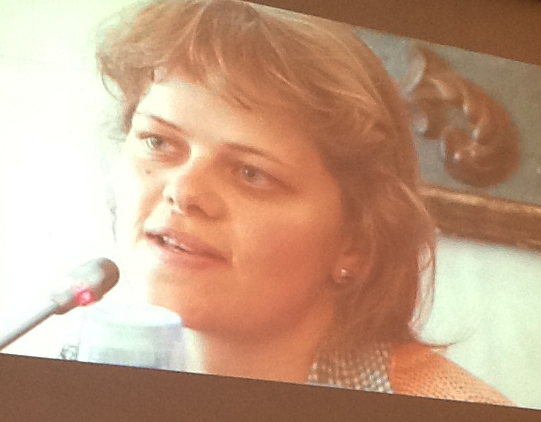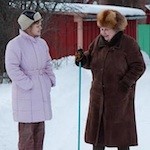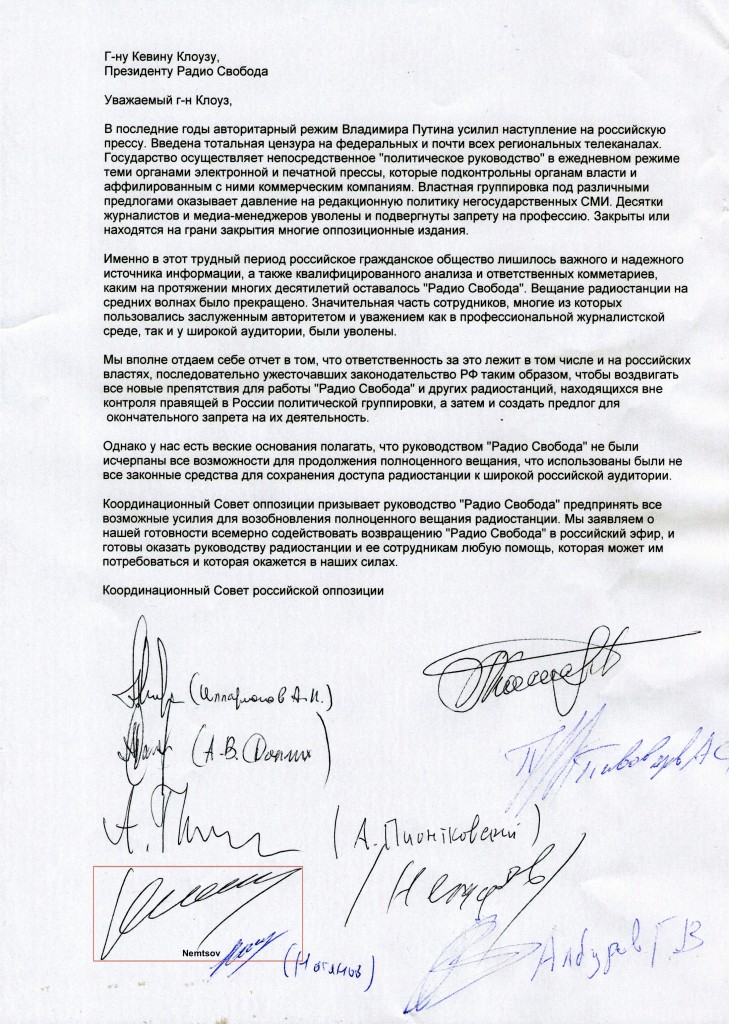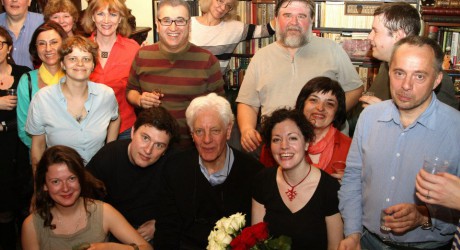BBG Watch Commentary
INTRODUCTION: In Russia, journalists who run afoul of the Kremlin or the business mafia, end up dead. Case in point: Anna Politkovskaya, murdered in 2006. Other critics of Russian President Vladimir Putin also ended up dead, among them opposition leader Boris Nemtsov, assassinated last year in Moscow. A British judicial inquiry into the polonium poisoning death of former Russian agent Alexander Litvinenko in 2006 concluded last week that Mr. Putin “probably” approved the murder beforehand. American journalist and Russian-speaking expert David Satter, who has often participated in Radio Free Europe / Radio Liberty (RFE/RL) and Voice of America (VOA) programs, urged in a Wall Street Journal op-ed that the Litvinenko murder inquiry should inspire more investigations of the Kremlin’s ugly tactics. In the past, David Satter had worked with a young and successful Russian investigative reporter, Anastasia Kirilenko. A few months ago she was in effect fired by Radio Liberty’s Russian Service management when her freelance contract was not extended.
No doubt that in order to avoid scrutiny, President Putin has closed down virtually every media outlet of significance in Russia critical of his rule and many NGOs, but not the RFE/RL bureau in Moscow. Why has RFE/RL been spared? Observers of the weak U.S. response to Putin’s propaganda offensive have been asking that question for years. Allowing a weak Radio Liberty to have a bureau in Moscow may help the Russian government to protect its own much more extensive RT TV operations in the West.
Anastasia Kirilenko is one of many who believe that the United States lacks a strategy for responding to Putin’s propaganda war. After being dismissed last year by the previous management of Radio Liberty’s Russian Service, even her name could not be used in new Radio Liberty Russian programs despite her impressive work to uncover the Kremlin’s corruption secrets. Earlier in her reporting for RFE/RL, Anastasia Kirilenko interviewed Marina Salye, a Russian politician who in 1992 headed a special commission in St. Petersburg that investigated Vladimir Putin, then chairman of the city’s Foreign Relations Committee, and accused him of corruption. It was one of Radio Liberty’s major journalistic accomplishments. Now shunned by RL, Kirilenko is being published in the West and even by some of the more independent media in Russia. Her colleague, Kristina Gorelik, a highly respected human rights reporter, was also fired by Radio Liberty despite being a target of vicious anti-Semitic online attacks by Russian ultra-nationalists.
UPDATE: While Anastasia Kirilenko is still unwelcome at Radio Liberty, and Kristina Gorelik, still has no job, since last week the Russian Service has a new director in Prague, the Czech Republic, where RFE/RL has its headquarters. Since September 2015, the Broadcasting Board of Governors has new CEO and director who has made some personnel changes in Washington. RFE/RL, however, still has no permanent president, and BBG has no strategy for responding to Putin propaganda, Anastasia Kirilenko told BBG Watch. But perhaps as a sign of new BBG CEO John Lansing’s growing managerial influence, VOA Russian Service recently interviewed Anastasia Kirilenko while she was being ignored by Radio Liberty. The new director of RL Russian Service since last week is experienced journalist Andrei Shary.
In a wide-ranging online conversation Anastasia Kirilenko describes how, in her view, Radio Liberty lost its way.
CONVERSATION WITH FORMER RADIO LIBERTY INVESTIGATIVE REPORTER ANASTASIA KIRILENKO – PART I
A Putin Corruption Reporter Too Radical For Radio Liberty
CONVERSATION WITH FORMER RADIO LIBERTY INVESTIGATIVE REPORTER ANASTASIA KIRILENKO – PART II
No Particular Radio Liberty Management Support For Interview With Putin’s Accuser
CONVERSATION WITH FORMER RADIO LIBERTY INVESTIGATIVE REPORTER ANASTASIA KIRILENKO – PART III
Life in Post-Soviet Russia of Former Radio Liberty Reporter
CONVERSATION WITH FORMER RADIO LIBERTY INVESTIGATIVE REPORTER ANASTASIA KIRILENKO – PART IV
Radio Liberty Gave No Support To Investigative Reporters
QUESTION: Who were your mentors at Radio Liberty?
 ANASTASIA KIRILENKO: My mentors were Mikhail Shevelev and Lyudmila Telen. They were very good in working with young people, respecting their independence and inspiring them.
ANASTASIA KIRILENKO: My mentors were Mikhail Shevelev and Lyudmila Telen. They were very good in working with young people, respecting their independence and inspiring them.
QUESTION: Were you ever detained by the Russian police while reporting for Radio Liberty?
ANASTASIA KIRILENKO: No, I was never detained. Only once in 2011, a policeman grabbed my arm while I was video streaming from a protest rally. My colleagues told me they appreciated getting the “get your hands of me” video and pushing him off. He did let go of me. I had a few bruises, but I continued streaming. If I had to do it and could do it from the police van, it probably would have been even better, but fortunately I avoided being arrested.
My another encounter with the Russian police was in connection with evidence I published in 2011 of links to the business mafia of one Putin’s friend, Vladimir Kilesev. He was close to the same group against which a criminal case was brought in a Spanish court in 2015. The group has links to the government of Russia, according to the court indictment. A policeman came to see me at the Radio Liberty bureau. He wanted to interrogate me because, as he put it, “his client Kiselev complained against Kirilenko’s aggressiveness.” So for several hours I had to answer the questions from the cop. I told that I’m only a journalist and I published official information from a criminal case. I also told him that his so-called “client” does not interest me beyond my professional life. It was unpleasant, but it was not really an attempt to intimidate me. They wanted to find out who were my sources.
Boris Nemtsov Signature on a Feb. 2013 letter in support of fired Radio Liberty journalists also signed by other prominent Russian democratic leaders.
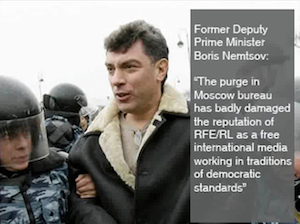 QUESTION: Whom else did you interview for Radio Liberty?
QUESTION: Whom else did you interview for Radio Liberty?
ANASTASIA KIRILENKO: I interviewed many people, including Boris Nemtsov, a liberal politician and opposition leader who was assassinated in Moscow in February 2015. He supported us when my RL colleagues were fired in 2012.
QUESTION: You were not fired in 2012 when the previous American management of Radio Free Europe/Radio Liberty (RFE/RL) abruptly dismissed dozens of Radio Liberty journalists in Russia, preventing them from even saying goodbye to their audience and causing a major scandal, but you resigned shortly after the firings. Why?
ANASTASIA KIRILENKO: I think I was not fired because I was still very young. In my opinion, it was a case of age discrimination, although quite a few of those fired were young professionals. They were highly talented in multimedia reporting. It was very unpleasant for me, as any discrimination is. I asked myself what would I do when I’m 50 and would find myself in a similar situation? I decided to stay to see what will happen and possibly report on it later, but first I took a short break from work.
After my colleagues were fired, I travelled for one week in Iran. It was always my dream to see Iran, and I decided it was a good time to take this trip?
QUESTION: What did you discover in your encounters with the Iranians?
ANASTASIA KIRILENKO: The Iranians were marvelous. They told me: “please tell the people in your country, we love Israel. It’s Ahmadinejad who destroyed the economy and pretends it’s Israel’s fault.” The Iranians I met were very critical of what was happening in their country and wanted to show they are not how the government propaganda describes them.
QUESTION: What happened when you got back to Moscow and reported back to work at Radio Liberty?
ANASTASIA KIRILENKO: When I got back to Moscow, I proposed to Masha Gessen, the new Radio Liberty Russian Service director who was named after the firings, to continue my investigative reporting in Russia. She told me something to the effect that she didn’t see any good subjects. She also said that we should do less on political topics and more on social ones, for example, about kindergartens in different regions of Russia. So, I resigned. I had tried, and it didn’t work. This may sound unbelievable, knowing the image Masha Gessen has in the United States. She was appointed to her position of Radio Liberty Russian Service director by RFE/RL American management shortly after she had a personal meeting with President Putin.
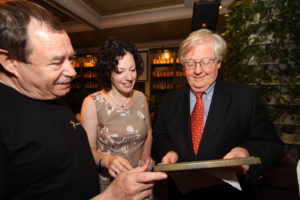
QUESTION: After more than 40 Radio Liberty Russian Service journalists who were abruptly fired by the RFE/RL management or resigned in protest, the web and social media traffic dropped significantly since many of those fired were star reporters like Mikhail Sokolov and Internet team editors. You along with many others eventually got your job back, largely due to protests from supporters of the Radio Liberty team, which then became known as Radio Liberty-in-Exile. Who were your Russian and American supporters other than Boris Nemtsov and former President Mikhail Gorbachev?
ANASTASIA KIRILENKO: One of the American supporters was Broadcasting Board of Governors member Ambassador Victor Ashe. I remember him well. He later received the Glasnost Award. In Russia, Lyudmila Alexeyeva, founding member of the Moscow Helsinki Watch Group, and many other human rights defenders and opposition politicians supported us. I went to a protest rally, gave many interviews about the unjust firings, and gave a testimony to an investigator from the State Department and Broadcasting Board of Governors Office of Inspector General.
Kevin Klose, then RFE/RL president, with Radio Liberty Russian Service journalists in 2013. Photo courtesy of Radio Liberty-in-Exile.
QUESTION: How did you get your Radio Liberty job back in 2013?
ANASTASIA KIRILENKO: I told the State Department investigator that I would go back to working for Radio Liberty if Masha Gessen leaves. She left in 2013. They wanted to know whether there would be enough people from the old Radio Liberty team who would be willing to go back. At that time I had another job in the Moscow bureau of the Le Monde French newspaper. I was allowed to finish several of my assignments for Le Monde, and do reporting trips for other media when I was rehired by Radio Liberty in 2013. New RFE/RL president Kevin Klose was good and very committed to saving Radio Liberty. He had expert knowledge of Russia and the USSR, which his predecessor did not. He was a distinguished journalist himself; it was exactly what we needed. But for some mysterious reasons, Kevin Klose soon resigned.
QUESTION: What did you think of another American journalist David Satter and his expulsion from Russia in 2013 by the Russian government when he was doing some investigative reporting work for Radio Liberty?
ANASTASIA KIRILENKO: David Satter, the former Moscow correspondent of the Financial Times of London, did some great reporting for Radio Liberty in recent years. Despite being a foreigner in our country, he had a better understanding of the political and social processes in Russia than many top Russian media managers and journalists. His goal was to do more investigative journalism. For example, in October 2013 he was responsible for the project of reporting on the 20th anniversary of the shelling of the Russian White House, Russia’s parliament building. Before that, only a simplistic “black-and-white” coverage of these events was allowed at RFE/RL–“Good Yeltsin” against the Parliament protected by “Communist Fascists.” Satter had a much deeper understanding of that period. I think for the first time Radio Liberty’s coverage of a historical event was more balanced and more popular then similar coverage by the independent radio station Echo of Moscow.
QUESTION: Did RFE/RL management offer David Satter sufficient support when he was expelled from Russia?
ANASTASIA KIRILENKO: As for what happened after David Satter was expelled from Russia by the Russian government, I’m sorry to tell you that the Radio Liberty Russian Service management did not offer him any support. I think, they even felt a badly hidden relief that he was kicked out from Russia. He had a special relationship with Kevin Klose, knew Russia, knew the language, and was therefore perceived by the Russian Service management as a dangerous element. They even tried to make fun of his work, but in my eyes, his reporting was outstanding.
BBG Watch Commentary
Since this Radio Liberty-in-Exile video “U.S. Congress Help US” was produced and posted in 2012, many of these RL journalists were rehired in 2013 when Kevin Klose became RFE/RL president. Since his departure after a brief tenure, a few of the same RL journalists were again fired, this time by the previous Russian Service management.
